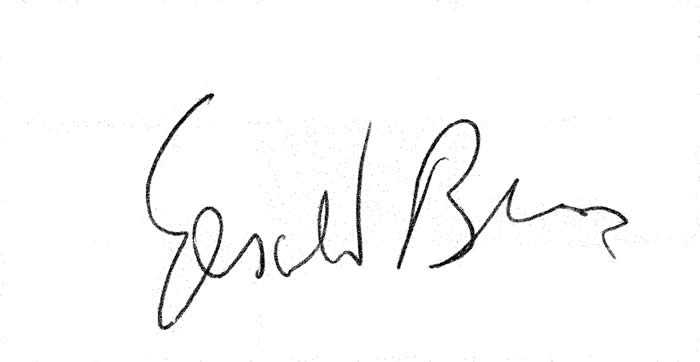
When George Meredith published Modern Love the "reviewer was upset before he
came to serious criticism by the extension of the sonnet from 14 to 16 lines," a
length Wallace Stevens also tinkered with. The words too bend with the length,
like the piece of pipe I covet near the post office, obtuse handlebar or right
angle at right angle to itself, one half sprayed white, the rest aluminum.
A "tube," I suppose. Chesterton imagines how Gray composed his "Elegy,"
a bit at a time, pleasantly surprised the pieces fit, and my favorite issue
of Punch (Nov. 16, 1927) has a drawing of Gray wigged, knee-britched, in a wing
chair, reading with roundeyed delight a manuscript to three rabbits or hares,
under it the churchyard with its cows and square tower, above a frieze of ducks.
One hare, on its hind legs on the chair arm, supports itself with front paws on
the poet's shoulder, its lemonshaped face foregrounding his face, as he reads. What is,
what could this be to me, its tenderness and idiocy sentimental, like people liking
Stevenson, but the hares complete, exhaust, what the poet does.
Chapman's Inferno
Perched on the side of the rock with the Master-Poet
I saw the thief who sinned against the Goddess Property,
the body's avatar, stick out his thumbs in air,
"Yo God, this one's for you, I saved it for you special," so
impudent in that place my heart warmed when the snakes
coiled, one around his neck as if to say "Enough of this!"
the other around his arms, and knotted itself in front
Houdini-wise, so tight I didn't even see him squirm.
Ai Pistoia, where the quarrels come from,
incinerate yourselves with fire like Canto XV's
for shame that what you bred is so much like the parent.
In all the blackness hitherto I never saw, not even
the one removed by lightning from the wall at Thebes
a haughtier to deity. And then he ran away.
A centaur trotted up and shouted "Where'd he go?
that bastard!" Even Florida has no more snakes than clustered
on his horsy half to where the coat dwindled.
Perched on his shoulders like some falcon a dragon,
wings akimbo, spat fire indiscriminately.
"That's Cacus," said the Poet, "whose cave on Rock Aventinus
turned the lake below into thick blood.
He's here not with his equi-men (in Canto XII) because
he hauled Hercules' oxen backward to his cave
confusing tracks like Silver Blaze, but Hercules found him out
and bashed him nine more times than was necessary."
Cacus cantered off meanwhile. It wasn't till we heard
"Who might you be?" which put an end to narrative
we found ourselves in company of three who'd sidled up
unnamable, but as happens one said "Where's Cianfa?"
At once I pressed my lips with forefinger nose to chin
in case the Master nodded. Reader, you won't believe
this next bit. I was peering at them when a kind of reptile
launched itself at one, attaching its middle legs
around his waist, its fore-claws catching in his arms
and bit his cheek clear through; its hind legs grabbed both thighs
between which it thrust its tail obscenely in, and up.
It was worse than ivy violating Daphne
Copyright Gerald Burns 1995-1997